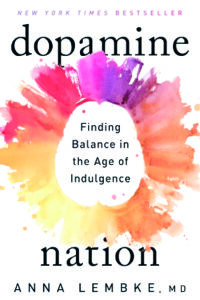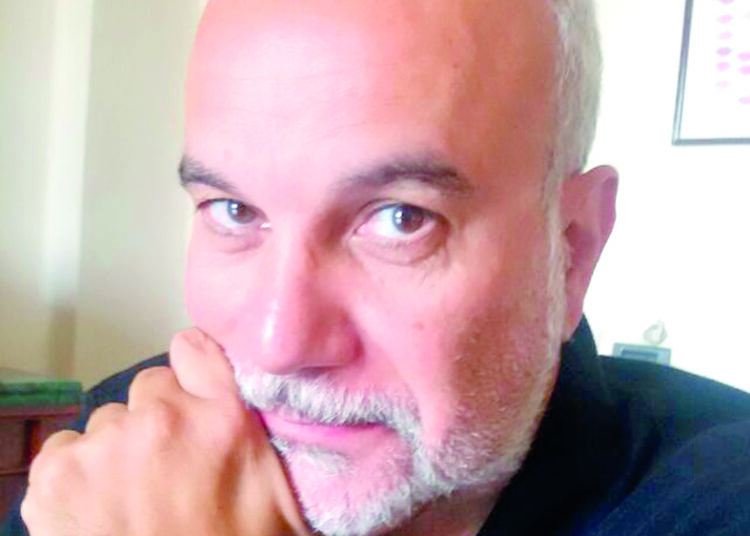By Sherif Attar
In a world of ever-changing ambiguity and uncertainty, executives have to face two challenges: excellent performance and people development. Where many managers think those endeavours are “competing”, this author believes they are “completing”. GET DOWN TO BUSINESS argues.
Breaking the cycle for balance.
Adapted from Dr. Anna Lembke, author of the new book, Dopamine Nation: Finding Balance in the Age of Indulgence.
Be it sugar, social media or sex, the response in our brain is the same: It produces the “feel-good” neurochemical called dopamine, which brings on feelings of pleasure and motivation. “It may be even more important for motivation than for actual pleasure,”. A dopamine hit brings about pleasure, and then is quickly followed by pain, or a come-down, in order to keep us motivated. Lembke says this balancing see-saw of pleasure and pain made sense in the time of early humans, when we had to constantly search for our basic needs.
But, in modern life, we live in a world of abundance rather than scarcity, and our brains weren’t evolved for the “fire hose of dopamine” of sugar, social media, TV, sex, drugs or any number of dopamine-triggering stimuli so easily available.

When we’re repeatedly exposed to our pleasure-producing stimuli, our brains adjust and, eventually, we need more and more just to feel “normal,” or not in pain. That’s called a “dopamine deficit state,” and the cycle that leads us there can actually lead to depression, anxiety, irritability and insomnia.”We’re not able to take joy in more modest rewards,”. “Now, our drug of choice doesn’t even get us high. It just makes us feel normal.
Ultimately, this is a universal problem. And to restore our sanity, collectively we must rethink how to navigate a dopamine overloaded world.
Break the cycle and restore balance
Start with a dopamine fast. Take a 30-day break from whatever it is that you rely on for pleasure: social media, sugar, video games, sex, pot, booze – anything. This doesn’t mean going cold turkey forever, but this first month is key to getting your pleasure-pain balance back in check.
You’ll probably feel a lot worse before you start feeling better. But after two weeks, the pleasure-pain see-saw will start to restore to its natural balance and you’ll be able to enjoy more modest rewards, like just one scoop of ice cream or just one episode of a TV show.
Place obstacles between you and your addictive behaviours
• Physical self-binding: Removing the addictive substance from your spaces. For someone who’s addicted to video games, that could mean a separate laptop for work and one for play.
• Chronological binding: Intermittent fasting for someone who has a food addiction, or a time limit control on social media apps.
• Categorical binding: Limiting yourself from certain types of “substances” – maybe reality TV sucks you in beyond your control, but you can consume a sitcom in moderation. Cutting out reality TV from your life would be categorical binding.
The most success in long-term recovery is when people can’t lie. Even though we’re often terrified of being radically honest with others because we think they’ll go running, the opposite actually happens: radical honesty promotes intimacy. “And intimacy is an incredibly valuable and potent source of dopamine,”. “We know that when we make intimate human connections, oxytocin binds dopamine, releasing neurons in the reward pathway and dopamine is released and it feels really good.”
Another level of this involves being radically honest with ourselves. If we tell ourselves stories that aren’t true, we’ll repeat our mistakes. But if we’re honest about how we’ve contributed to our own problems – we can work on those mistakes differently.
“People in recovery are modern-day prophets,” Lembke says. To maintain balance, we have to strike a pleasure-pain balance, which, in a time of abundance and over-consumption, means intentionally avoiding pleasure and seeking the kind of purposeful pain that keeps us healthy, such as exercise or resisting certain temptations.
“By doing that, we will reset reward pathways and ultimately be a lot happier. It’s simple but not easy, but it’s well worth doing.”
For questions or suggestions, please send your comments.
Sherif Attar, an independent management consultant/trainer and organisation development authority, delivers seminars in the US, Europe, Middle East and the Far East.






Discussion about this post